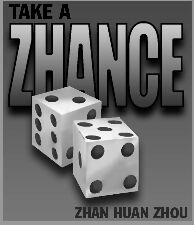
Spring 2000
Fall 1999
Winter 1999
Fall 1998
Spring 1998
Fall 1997
©2001 Zhan Huan Zhou
Updated Mar-01-2001
Please email me for comments, corrections, or suggestions.
What You Know, Part IV
©2001 Zhan Huan Zhou, Winter 2001, Issue 4
So far, I've talked about the first two postulates "You don't know that you don't know" and "You know that you don't know." There appears to be the recurring theme of not knowing. When do you finally know something? In this issue, I will discuss the last two postulates where you actually know something: "You don't know that you know" and "You know that you know."
Third year may seem boring. First year was big jump from high school to university. In second year, you took comfort that you weren't frosh. In third year, things were starting to get routine. But something not routine happened in third year when things start to click. Behind your back, your courses slowly transformed from purely mathematical and theoretical into something that is practical and related to your discipline. In fact, you may have even run into course work that relates to one of you work terms. Imagine that, lectures and labs actually have value in the workplace. What is happening here is that you actually know stuff, but in your ignorance, you don't realize this fact. Your ignorance from first year still haunts you know, but your realization in second year makes you a great cynic. From second year, you fear so much that you know that you don't know that this cynicism and ignorance covers the fact that "You don't know that you know." Knowing, even subconsciously and not knowing allows for the final transition into fourth year.
Fourth year is fun, very fun. Your worries from all previous years disappear. No more dealing with co-op, interviews, and Needles Hall. No more huge classes with 100 people. The opportunity to take electives. Technical course that you actually like. But most of all, it is fun. "Why is so fun?" you may ask. The answer, of course, is that "You know that you know." By fourth year you've seen everything, well, many things at any rate. You've tested the boundaries on practically everything imaginable. This includes finding out how many lectures you can skip and still pass, how late you can leave studying until and still pass, how late you can stay out partying and still pass, how much coffee you can consume, how much alcohol you can consume, and pretty much how much you can do anything and still pass. Knowing these boundaries greatly increases your free time and thus time to do what you want. Having time to do what you want is the very reason why fourth year is so fun. Even if you don't have time, you might still decide to do something because you might not have a chance again. But enough about socializing.
In fourth year, your academics also make much more sense. For some strange reason, excerpts from linear algebra pop up in class, courses from second year that you thought you would never use come in handy. But the cool thing about all this is that you know that you know. Or at least you know that you should know and you know how to learn it. Fourth year brings about a sort of wisdom because you've seen the edges and stretched all your limits. You know what you can and can't do to survive. And of course, there is always comfort in the fact that the profs don't like to fail students in 4B. But you already knew that because by now, "You know that you know."
This concludes the outline of the four postulates. In next issue, I will take a stance that is quite different from the ones given and look at the postulates from an alternate perspective.